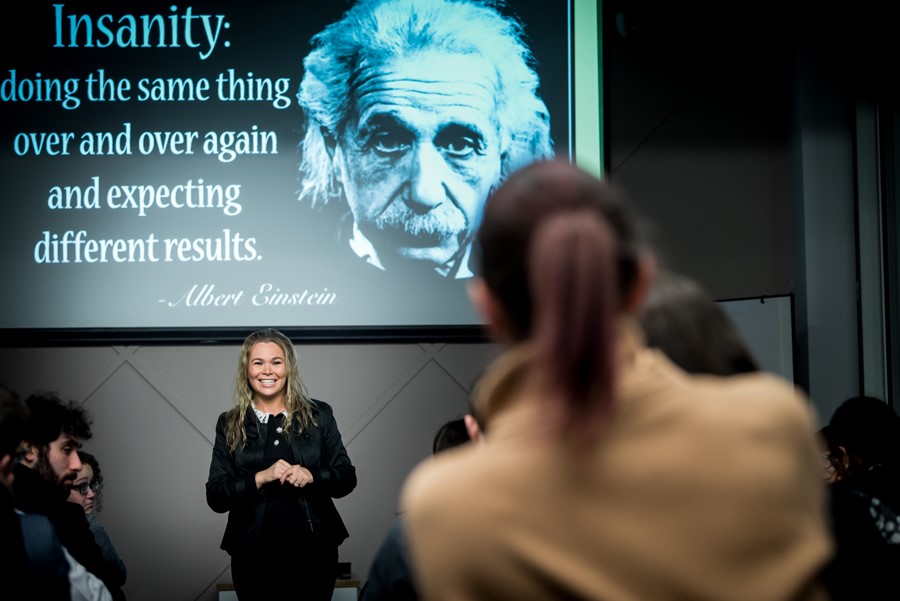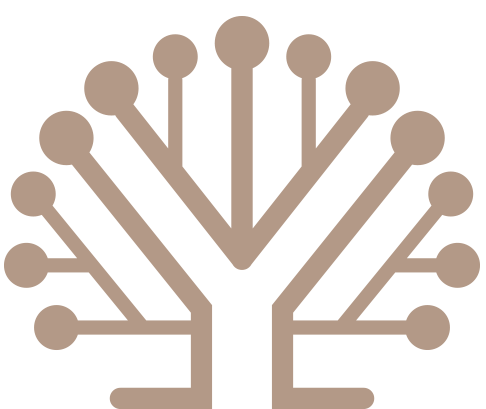

Close


1. Corporate can go start-up. The entire place.
Agile working and a start-up vibe is all the rave. Chinos, post-its, walls that can be written on, free coffee and flexi-working. Stereotype all you want, but if you’ve tried it you’ll know it’s a more comfortable atmosphere that breeds better results. I see the formal corporate framework struggling to retain young talent embodied by those that can’t quite fit the corporate culture! I have been to many of the blue-chip companies’ ‘trendy’ hubs, where more diverse departments have developed to house these talented, more alternative individuals! What struck me about Vodafone is that is in fact their modern, forward-thinking, start-up-vibing hub. It’s not a small part of the company for some people, it’s the whole company for everyone!
Bottom line: The whole company has made the shift to agile working, not just a small hub.
Disclaimer: Wearing jeans and getting a pool table is not a culture shift! Get involved in the essence of what agile working means.
2. Millennials like security too.
Whilst start-ups are hot at the moment, the main downside is their preliminary nature: unstable, high risk, adrenaline highs and crashing-lows. Whilst some thrive on this roller-coaster, in reality many millennials are now looking to settle down and do the whole ‘adult thing’. Steady income, stability, security, mortgage, child-care…. you know the drill. If this can be achieved with a start-up feel to it, well what a win! Vodafone has recognised this opportunity and jumped on it, essentially they have the infrastructure to offer these stable constants, as well as a start-up feel…. other large corporates – you can do that too! Often I hear – but how do we stand a chance against the trendy start-ups, well you have the establishment to offer safety and security – mix that with a more informal and flexible culture and your providing something unique and in-demand.
Bottom line: mix the safety and security of an established organisation with a more flexible work culture and you will attract a ton of talent!
Disclaimer: once you attract it at recruitment level, make sure you have the systems in place to retain it!
3. Collaboration elaboration.
Make time to live the collaboration dream, don’t just talk about it. Companies will often share how ‘collaborative’ they are, but when it comes down to it that basically means: the work force are allowed to give feedback on particular things, at particular times of year, in particular ways, to particular people, that input may or may not be recognised… you might find out in a year or so. It was so great to witness a collaborative management style in it’s true form. For example, teams had social contracts on the wall, which they had developed together…when a half-hour slot for this translated into a 5-hour session, you know that everyone had a say! The result, a collaborative contract for the team to abide by, of course performance management on this is unnecessary- because they chose what it should be in the first place! Ever wonder how to diplomatically navigate working from home days, check-ins, a sharing culture, phone use…. just being nice!? Well…. it’s all in this mutually invested contract!
Bottom line: if you want rules that everyone buys into, let them help make them.
Disclaimer: I’m all for democracy, but don’t let it become a free-for-all, boundaries are crucial!
4. Feedback needs to be more frequent!
When companies still use quarterly appraisals as the only form of feedback… you know the dinosaurs are nearby. Hearing about daily briefings, weekly get-togethers and fortnightly team meetings was refreshing. I think the fortnightly meetings are invaluable, facilitating a 360-style feedback session, whereby everybody can share their thoughts on themselves and others in the team in a safe space. What’s a safe space? Basically, no one will bite your head off for having an opinion, also feedback will be internalised and implemented appropriately. As a therapist, I consider this space invaluable for the younger employees, as so often face-to-face interaction, especially over sensitive issues, can be unfamiliar and thus uncomfortable. You know what they say, practice makes perfect.
Bottom line: be a team that is ready to grow through feedback from all directions.
Disclaimer: managers need to ensure this space remains productive and focused, a fortnightly group therapy session for venting should not evolve here!

5. It’s all about that pace, bout that pace, bout that pace.
Coming from a multi-tasking, fast moving, instantly gratifying back drop, going into a slow working office can feel torturous for the millennials and Gen Z. Sometimes the more traditional marathon-style approach to work is the only way; slow and steady wins the race, but for many this is too much of a long-haul to stick with. Many divisions of Vodafone run on a fortnightly project basis! Every 2 weeks there’s another regroup, assess the next goals, set the next targets. The vibe of adrenaline-pumping and excitement, at having short-term goals within reach, was tangible. This is like fuel for a generation that can access almost anything VERY quickly, I mean for a date all you got to do is swipe right!? For a social media using generation, who is used to NOW NOW NOW, ME ME ME, this is the stuff that pumps them.
Bottom line: speed up!!! Find the short-term goals in your overriding projects and focus on them, keep the targets within reach to keep the adrenaline pumping.
Disclaimer: as the pace picks up, quality shouldn’t drop. Systems need to be in place to ensure the work produced is quality-controlled.
6. Invest in your tech.
Tech is designed to enable a seamless existence between virtual and actual realities. It is fast, effective, reliable and efficient, if invested in and utilised properly. You will not get the BEST results if you do not have the BEST tools. Think 3 little pigs…. build your house from straw it will come tumbling down. Get the bricks, the very best ones in fact, and your house won’t shake when the wolves come. Cutting-edge tech will stream-line productivity, boost pace and quality of results. With Vodafone’s resource and pool of talent they develop bespoke tech that has facilitated a super-efficient operational running of things.
Bottom line: invest in the best to get the best.
Disclaimer: the tech must be implemented within a robust, and efficient, managerial and operational framework to breed the best results.
7. Don’t be afraid to find your flaws.
Walking around Vodafone the question resonating was: how can we be better? This seems to be at the root of their mind-set. What struck me was that this is a brave question, one you can only ask if you acknowledge you are not yet the best you could be. I believe this humility lies at the heart of growth, if we are so full of our own successes we don’t have space to listen, learn and develop. We must empty some of our pride, to leave space for the thoughts and ideas of others, even those of the grads fresh out of uni.
Bottom line: if you want to grow don’t be scared to highlight your flaws. Always ask; how can we be better?
Disclaimer: ensure that that this is done in a healthy proportion, and that the overriding strengths are always held close.
8. Be Kind. Be ethical.
It’s no secret that millennials and Gen z are major advocates for ethical practice; whether that relates to the environment, animal advocacy, mental health awareness, and so on. Be a company that shows you care too. Provide opportunities for active participation in these realms. Help your staff make a difference, this will attract passionate people. Passion being a key quality for success.
Bottom line: care about the rest of the world and offer opportunities to demonstrate this.
Disclaimer: be authentic; don’t make unrealistic claims or inauthentic representations of ethical standards. For example, if you say you’re against animal testing – make sure your hand soaps are animal testing free!
9. Stop micromanaging!
It can be hard to take a step back and let the younger, less experienced ones take responsibility for themselves! But, if you don’t step back from being over their heads, they can’t step up. Believe in the people you recruit, the people you promote as managers beneath you, believe that they can manage well, believe in the training you provide them with. Give them space for their own autonomy and independence, this is how they will thrive! Don’t micromanage due to your own need for control, often out of fear of mistakes and the mistrust of others.
Bottom line: step back, so people can step up.
Disclaimer: put trust in people, but watch what they do with it and be sure to withdraw it if they prove undeserving.
10. Change has to come from the top.
Many employees have been at Vodafone for many years, and have stayed through enormous changes. I find this intriguing, because change often pushes people away, it can feel unnerving. But in Vodafone, employees shared their desire to stick due to the overriding security that the evolution of their workplace was coming from the VERY top. They expressed comfort in knowing that the changes were endorsed and developed by the C-suite, who made an effort to have their feet on the ground and demonstrate physical presence. Whilst employees were being asked to buy into a new vision, they were reassured by the new London building serving as a structural display of belief and commitment into the vision from above too.
Bottom line: change is hard, if you don’t want to scare people off they need to see constant, unwavering commitment from the VERY top.
Disclaimer: C-suite, I know you sometimes find it hard to adapt, but your company will not survive, if it doesn’t. It’s survival of the fittest through adaptation, Darwin basics.

